Content
- 1 Why do children need magnesium
- 2 Reasons for a lack of magnesium in children
- 3 Symptoms of a lack of magnesium in a child
- 4 Daily need for magnesium in children
- 5 Magnesium containing foods
- 6 Vitamins with magnesium for children
- 7 How and in what dosage to drink magnesium for a child
- 8 Contraindications and side effects
- 9 Special recommendations
- 10 Conclusion
- 11 Reviews of vitamins with magnesium for children
Magnesium is an incredibly important element for children - when it is deficient, serious negative symptoms develop. To protect your baby's health, you need to look into the signs of magnesium deficiency and the best sources for the macronutrient.
Why do children need magnesium
The macronutrient magnesium belongs to the category of vital substances that affect the functioning of the whole body. For children, magnesium has the following functions:
- responsible for the functioning of the nervous and muscular system, regulates signal transmission;
- participates in the construction of protein compounds necessary for muscle growth;
- supports a healthy metabolism and promotes energy production;
- participates in the transport of potassium and calcium to tissue cells;
- promotes good absorption of calcium and, due to this, is responsible for the health of the skeletal system;
- helps maintain a healthy heart rate and normal blood pressure;
- regulates blood glucose levels.
Also macronutrient is responsible for children's ability to concentrate, perseverance and brain activity.

Reasons for a lack of magnesium in children
Since magnesium is one of the main macronutrients, it normally enters the body with food in sufficient quantities. However, children often develop a deficiency of a useful substance, and this happens for several reasons:
- a poor diet or frequent fast food consumption;
- an excess of protein products in the diet and a lack of fats and carbohydrates;
- a sedentary lifestyle and rare walks in the fresh air;
- physical or mental fatigue, especially schoolchildren are often faced with magnesium deficiency;
- period of active growth - the body consumes nutrients especially quickly, and against this background, a shortage of basic elements may occur;
- taking diuretics for acute or chronic diseases;
- prolonged temperature effects on the body, for example, a macroelement deficiency can appear in the hot summer, when the child is actively losing magnesium through the skin along with sweat.
Symptoms of a lack of magnesium in a child
The signs of magnesium deficiency in children are quite obvious. These include:
- increased fatigue and poor sleep;
- lagging behind peers in physical development and poor school performance;
- heart palpitations and blurred vision;
- muscle spasms and nervous tics under the eye;
- frequent headaches;
- increased anxiety and hyperactivity;
- weakness of bones and joints and dental caries;
- frequent digestive upsets for no apparent reason.
Since the symptoms of a magnesium deficiency can be easily confused with signs of other diseases, it is necessary to take tests for the level of magnesium in the body when alarm signals appear.
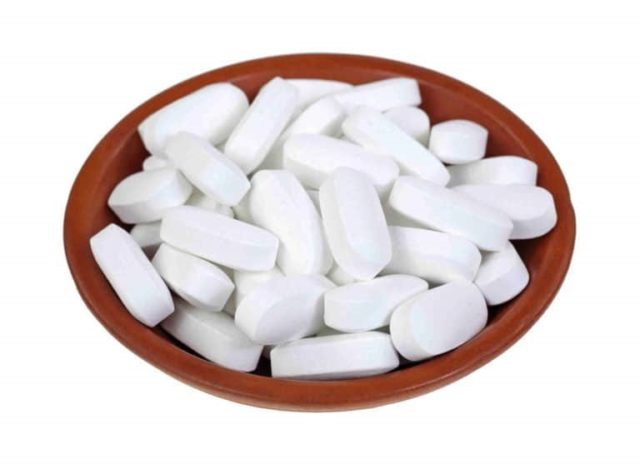
Daily need for magnesium in children
Normal levels of magnesium in a child's body depend on age. On average, children need:
- about 0.08 g of magnesium under the age of 3 years;
- about 0.13 g for ages 4 to 8;
- about 0.24 g for ages 9 to 13.
Boys from the age of 14 until the age of majority are required to receive at least 0.41 g of magnesium per day, and girls - at least 0.36 g.
Magnesium containing foods
Maintaining normal magnesium levels in the body is easy enough if you keep a variety of diets. The beneficial substance is present in large quantities in the following products:
- in millet and oatmeal, buckwheat and rice;
- in bran;
- in peas, lentils and beans;
- in almond and pumpkin seeds;
- in walnuts, as well as in peanuts, hazelnuts and pistachios;
- in vegetables and herbs, dried fruits and fresh fruits;
- in fish and seafood.
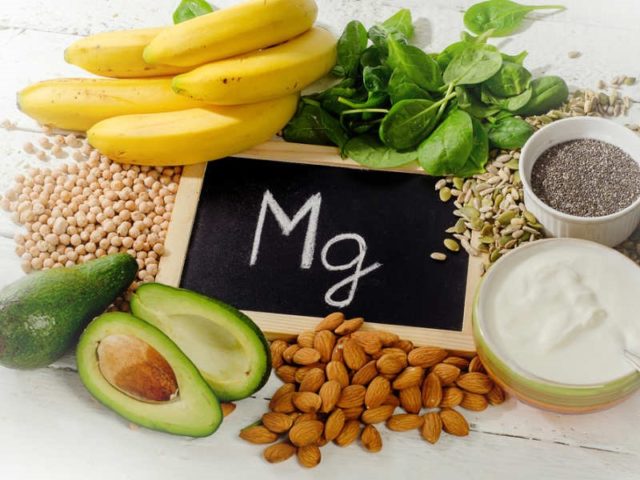
It is necessary to compose a diet taking into account the age of the child, however, in almost any period of life, children are allowed to give certain foods containing the desired macronutrient.
Vitamins with magnesium for children
Sometimes it is not possible to correct magnesium deficiency with food. This usually occurs when there is a strong lack of a useful substance, in the presence of intolerance to certain products, with exacerbations of chronic diseases. In such cases, vitamin complexes with magnesium come to the rescue, they allow you to quickly return the level of the beneficial substance to the age norm.
Magne B6
The drug is sold in two dosage forms, in the form of tablets or a solution in ampoules for oral administration. The tablets contain 48 mg of the active ingredient, and liquid magnesium for children contains 100 mg of the useful macronutrient. Also, the vitamin preparation contains vitamin B6, which contributes to the faster absorption and assimilation of magnesium.
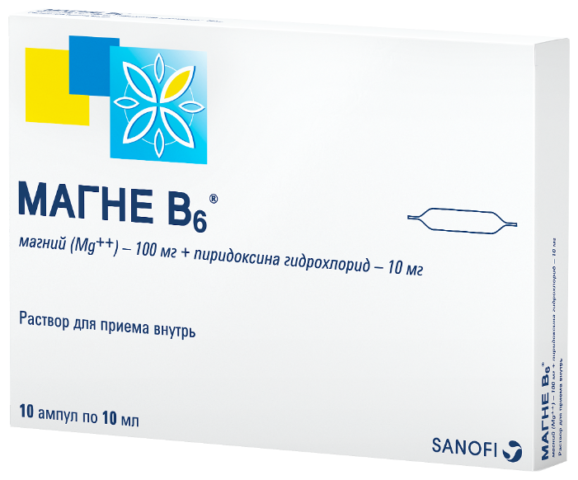
Magne B6 solution is intended for use for children from 1 year old, tablets can be given to children from 6 years old. The drug allows you to quickly eliminate the deficiency of a macronutrient, but it should be given to children as prescribed by a doctor, in case of an overdose or erroneous use, unpleasant side effects are not excluded.
Magnelis B6
Another affordable and effective drug is Magnelis B6, which is available in tablets and contains about 70 mg of magnesium. Vitamin B6 is also an auxiliary substance in the preparation, which accelerates and improves absorption.
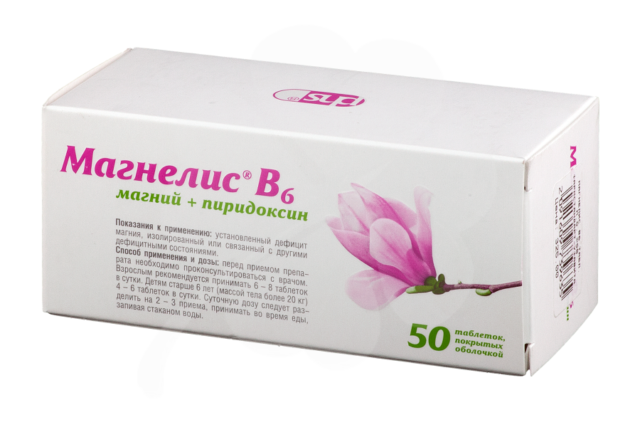
The drug Magnelis B6 is approved for use for children over 6 years old on the recommendation of a doctor, the maximum daily dosage of the drug is 6 tablets. Magnelis B6 has a positive effect on the nervous and cardiovascular system, has a beneficial effect on mental abilities and concentration. In particular, the vitamin preparation is indicated for use for schoolchildren during the period of intense educational loads.
Magwith
The vitamin preparation is available in the form of capsules in a yellow gelatinous shell, each containing 50 mg of magnesium and another 5 mg of pyridoxine, which improves the absorption of the macronutrient. For infant use, Magwit is not suitable, but children from 6 years and older are prescribed it quite often.
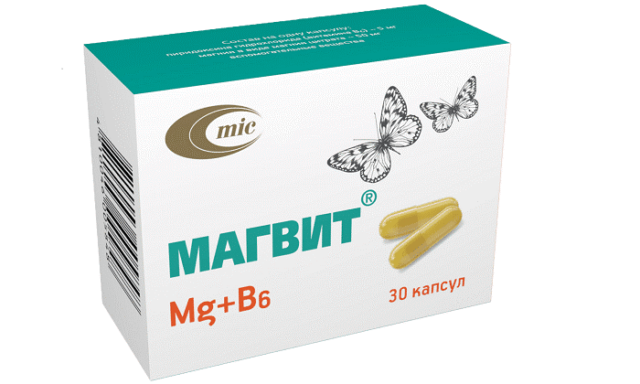
When used correctly, Magwit improves the child's ability to concentrate and mental activity, normalizes sleep and evens out the emotional state. It is necessary to use the drug for children in strict accordance with the instructions. Before introducing it into a child's diet, it is necessary to consult a doctor.
Kudesan
The product is available in the form of tablets and drops and contains about 300 mg of active ingredient.It also contains vitamin E and coenzyme Q10, which increase the absorption of the macronutrient and further improve the condition of the body.
You can offer Kudesan in tablets to children from 12 years old, and drops are allowed for use even for babies. But before you buy a drug for a child, you need to consult a doctor and get tested, since an excess of magnesium in the body leads to unpleasant consequences and allergic reactions.
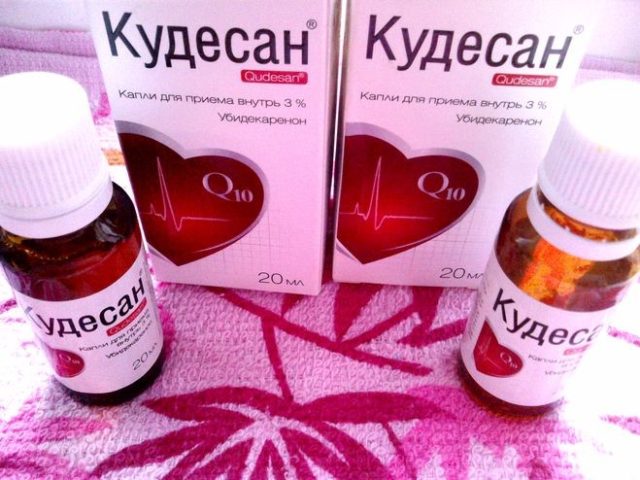
Asparkam
The combined preparation contains 175 mg of the main substance, and potassium is also included in the preparation - a deficiency of two macronutrients often develops in children at the same time.
Asparks are allowed for use on the recommendation of a doctor, even for infants, and you can purchase a vitamin preparation in the form of tablets. The remedy protects the heart, muscular and nervous systems from the development of ailments, and also helps to maintain the correct metabolism.
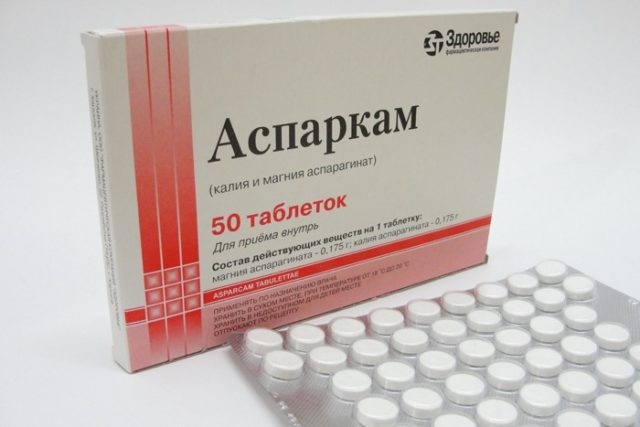
How and in what dosage to drink magnesium for a child
The specific instructions for the use of drugs depend on the selected vitamin remedy. The daily dosage of magnesium for children should not exceed the age norm - from 0.08 to 0.41 g per day. There are several general guidelines for taking magnesium supplements:
- It is best to take vitamin supplements for children with meals.
- Liquid vitamins are dissolved in a glass of water, tablets and capsules are given to the child to swallow whole and also offered to be washed down with water.
- You should not take vitamins on an empty stomach - this threatens with indigestion.
Any preparations containing magnesium are designed to be used on average for a month; you cannot drink vitamin supplements on an ongoing basis.
Contraindications and side effects
Despite the fact that magnesium is strictly necessary for the healthy functioning of the child's body, there are some contraindications for the macronutrient. It is impossible to use drugs containing a substance:
- with renal failure and other serious abnormalities in the excretory system;
- with an individual allergy to certain substances in the composition of drugs;
- with dehydration of the body against the background of food poisoning, severe stomach upset or frequent vomiting;
- at elevated temperatures, accompanied by severe sweating;
- with a reduced heart rate against the background of painful conditions;
- with intestinal obstruction and internal bleeding.
With an overabundance of macronutrients in the body, allergic reactions, indigestion, nervous excitement and heartbeat disorders can develop.
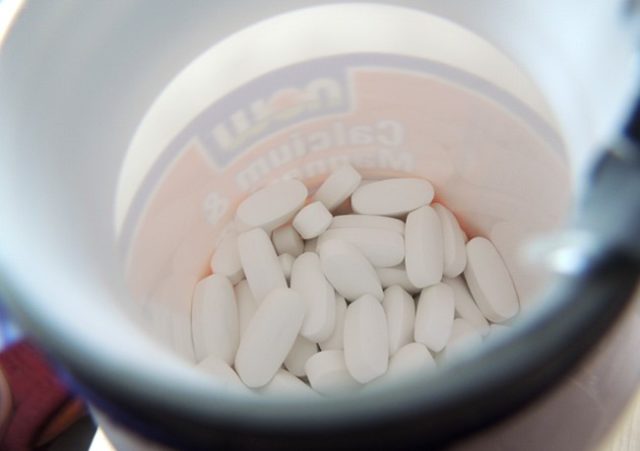
Special recommendations
Pediatricians provide some specific advice regarding magnesium intake for children:
- It is best to give magnesium to a child in conjunction with vitamin B6, this combination is used by many pharmacy complexes, since B6 significantly improves the absorption of the macronutrient;
- it is impossible to give magnesium to children simultaneously with iron and calcium - these substances do not combine well with each other, and at least 3 hours should pass between their intake;
- it is necessary to give drugs to the child at the same time as food, so that the useful substance does not provoke gastric upset;
- a child should drink magnesium only with clean drinking water - juices, tea, and even more soda are not suitable for these purposes.
Pediatricians agree that the best and safest sources of magnesium for children are always food. It is important for parents to pay close attention to the children's diet and turn to pharmacy drugs only in case of extreme necessity and a pronounced deficiency of the necessary macronutrient.
Conclusion
Magnesium for children is strictly necessary, it is responsible for the well-being of the child and the health of his nervous and muscular system, heart and blood vessels. Many drugs for children are sold in pharmacies, but they can be used only with the permission of a doctor and strictly according to instructions.
Reviews of vitamins with magnesium for children

